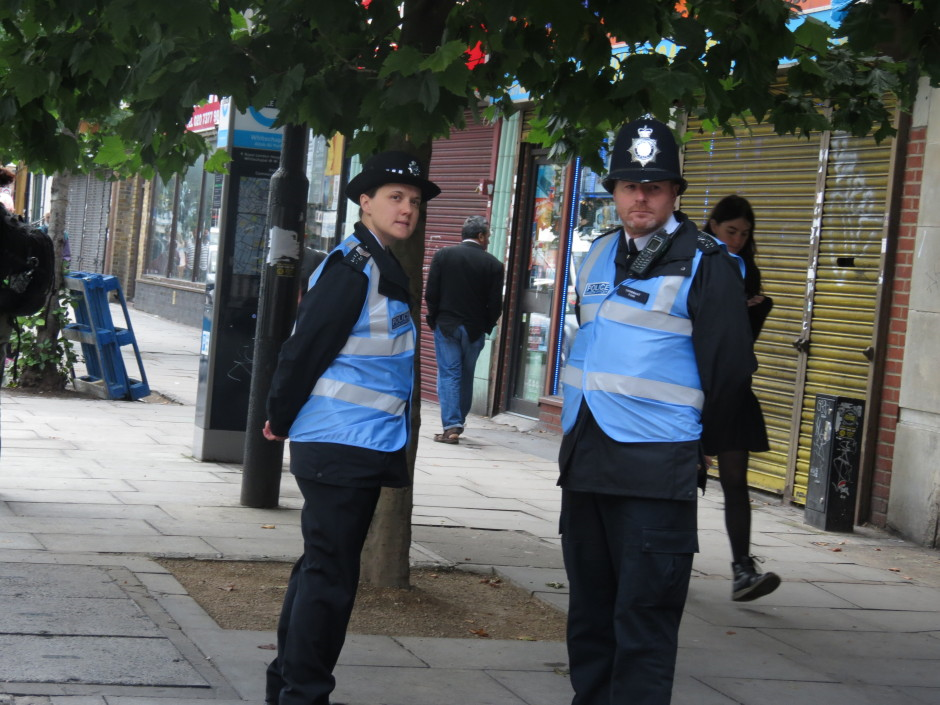
The day after this year’s World Day for Animals in Laboratories march in Nottingham a very controversial post appeared on the group’s Facebook page. It showed a protester posing with a police officer, both smiling. A number of comments were positive but I said it was a terrible picture because it implied the police were our friends and to be trusted.
This set off a barrage of complaints from people. How dare I say such a thing! The officer in question was a very nice chap who showed an interest in vivisection and had even signed a petition. It is wrong to judge anyone. There are good and bad cops, just as not all campaigners are nice people (yes that comparison was made between us and them).
I made the point that it did not matter whether the individual officer was nice or not or kind to animals or helped victims of crime. The police are not a neutral body whose job it is to uphold laws fairly; they are on the side of the animal abusers and the ruling class. And, importantly, one of their main duties is to gather intelligence on us and our activities. This is what they are paid to do.
Others expressed similar sentiments and as the debate descended into a bit of a slanging match the administrator weighed in to berate me and those criticising the police with negativity and ruining what was a positive group. The following day the whole thread was deleted.
I must admit I was surprised by the naivety of people who believed we should trust the police. Ok he may have been genuine but how can we know? Surely we always have to keep our guard up based on past experience of the policing of protests based on bullying and protestors’ ignorance of the law. Moreover in recent years the police have systematically intimidated and persecuted anti-vivisectionists in particular.
Now following the protests against fracking in Balcombe, Sussex, thee is no doubt that every police officer is a potential intelligence gatherer – even Police Liaison Officers who are seen by senior police officers as playing a “pivotal role” in gathering intelligence on activists.
The Network For Police Monitoring have obtained a review report by Hertfordshire & Essex Police that discussed “lessons learnt” from the policing of Balcombe which it says “should be fed into the emerging national coordination on fracking”.
Crucially, the review report also confirms that Police Liaison Officers (PLOs) played “a pivotal role in the operation” by “interacting with the protest organisers” and as a result, “there was intelligence, including open source, to suggest the protest would escalate” from 25 July 2013.
The report is critical, however, of the way that this “was not utilised in an effective a manner as possible” and complains that it was unclear how PLOs fed back the intelligence they had gathered to their senior officers. The review report concludes by recommending “the deployment of a dedicated PLO Bronze” that “may help ensure that important intelligence is appropriately considered within the command structure.”
There you have it in the police’s own words. PLOs are not neutral bystanders, they are part of the intelligence gathering framework and one of their duties is to report back on what we say. That applies to ordinary police officers too. Do not talk to them unless you have to, do not give them information about yourself or what you’re doing. It is sometimes necessary to cooperate with them on protests and it is not usually a good idea to be rude to them. But they are not our friends and they are never ever to be trusted.
Before going on demonstrations it is always a good idea to know what your rights are and what the law is. Have a look at these websites. Knowledge is power!
http://www.freebeagles.org/ http://www.yourrights.org.uk/
Here is the report on PLOs from the NETPOL website.
http://netpol.org/2014/06/17/police-liaison-intelligence-balcombe/
Leave a Reply